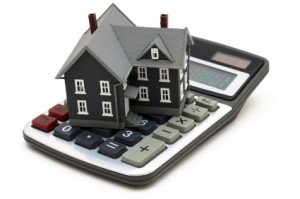The automated valuation model (AVM) is a fast, convenient way for mortgage lenders to value a property, one that utilizes mathematical models and databases of information.
Though quick and easy, Gina Pogol of HSH documents several of AVM’s shortcomings in a recent article, some of which can prove detrimental to homeowners.
The AVM, Pogol writes, uses four models in assessing property values. The first, the indexing model, uses the pricing behaviors of a homeowner’s neighborhood and applies those metrics to the individual property; the second, the expert system, emulates the thought processes of a human appraiser by using several factors, from the size of the home to its age, and then mathematically generates a value; the third, a regression analysis model, uses equations to determine how a property’s characteristics determine its value; and the fourth, the neutral network, directly uses the physical traits of a residence, like bedrooms and square footage, in judging value.
Despite the many alternatives for AVMs, though, Pogol does point out some of the disadvantages to the model. Citing a Government Accountability Office (GAO) study, Pogol writes that in using tax records from county recorders and MLS sources, AVMs may use dated information, or, even worse, be based on statistical models from similarly dated sources.
“Information on property sales kept by county recorders is not necessarily complete or consistent because disclosure and data collection methods can vary by county,” Pogol writes.
“MLS data can be inaccurate and outdated because real estate professionals enter the data themselves.”
Those inconsistencies are notable in neighborhoods with homes of different ages and different sized lots, particularly when an AVM is forced to assume all homes are in average condition. The GAO concluded that AVMs never should be considered official appraisals.
The issues of AVMs, Pogol writes, can especially manifest when they are used for important financial services, such as refinancings and loan modifications. Mortgage servicers sometimes use AVMs when determining a homeowner’s eligibility for both the Home Affordable Refinance Program and the Home Affordable Modification Program, and if any of the aforementioned irregularities arise in the AVM, a homeowner could be disqualified and forced to privately hire a licensed appraiser.
“Be sure you know the drawbacks associated with this ‘faster and easier’ process,” Pogol concludes.

I take issue with one of Pogol’s points. MLS data is, in fact, the most accurate and up to date data regarding properties, because people whose livelihood depends upon the data are entering and updating it in the MLS system. Additionally, you have staff and processes in place through the MLS to make sure the data is in compliance with its rules. These regulations maintain high quality standards for the listing content.
Frankly, the fact that AVMs are even close to the actual value of properties is due large in part to MLS data and the MLS’s brokers and agents.
Zillow even admits their AVM is off by about eight percent. That’s pretty huge when you’re talking home values — an eight percent haircut could almost wipe out a ten percent down payment. The GAO, which concluded that AVMs are not a valid substitute for a real appraisal, has no dog in this hunt, and their research is impeccable.